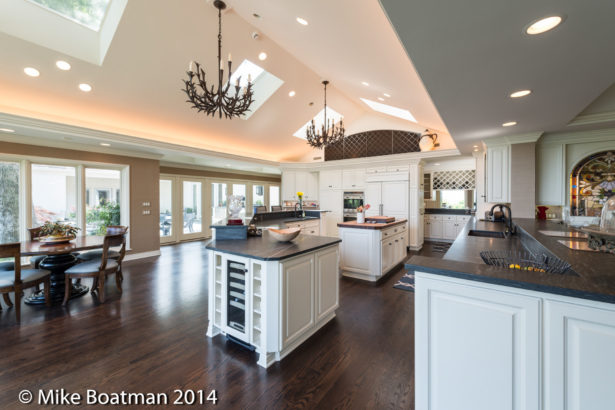Why Mike Boatman?
TEXT AND PHOTOGRAPHY CREATED BY MIKE BOATMAN
© Mike Boatman 2018
I am a commercial custom advertising photographer.
This means I do commercial custom assignment photography where the job of the photographic image needs to sell a product or service. To help grasp the meaning of commercial photographer, let me explain….
There are three main categories and two subcategories of photographers.
The three main categories are:
- Portrait
- Journalism
- Commercial
The two subcategories are:
- Fine art
- Education
Portrait photographers are classified as retail photographers, typically dealing with the general public. Job assignments include weddings, and family portraits. The photographers’ skill sets range from entry-level to extremely advanced. Although the majority of portrait photographers do not have extremely advanced technical knowledge, they usually have exceptional people skills. Generally, about seventy percent of all photographers fall into this category and have low to average technical knowledge.
 Photojournalists typically work for hire and are employed by newspapers, magazines and news corporations. Their typical assignment is to create images that illustrate news events and document history. Typical entry-level skill set and technical knowledge for photojournalists is moderate to advanced. In the 1980s and 90s this category represented twenty percent of photographers. Over the last 20 years this percentage has dropped drastically due to digital and general public submissions.
Photojournalists typically work for hire and are employed by newspapers, magazines and news corporations. Their typical assignment is to create images that illustrate news events and document history. Typical entry-level skill set and technical knowledge for photojournalists is moderate to advanced. In the 1980s and 90s this category represented twenty percent of photographers. Over the last 20 years this percentage has dropped drastically due to digital and general public submissions.
Commercial photographers represent the top ten percent of photography. Entry-level knowledge for this category is advanced to extremely advanced. Commercial photographers are generally called on to be able to artistically create dynamic images on demand that are technically perfect. Commercial photographers must have advanced theoretical knowledge of light and all light modifiers … an absolutely job entry requirement. The commercial photographer also has to understand color theory and camera optics.
Photographer vs. Photography
Photography is usually associated with the portrait industry. You will see it in the business name – John/Jane Doe Photography. Photography is possessive in that it represents one’s personal photographic style. The portrait or general photographer develops a style of how they visualize, photograph, and create images. This could also be referred to as their brand imagery and everything that they photograph will have this style or brand approach applied to it, regardless of whether or not it is the best or correct approach for their subject matter. This photographer is hired because of their unique style.
When you think “photographer,” you generally think of a photojournalist or commercial photographer. These individuals have a vast knowledge about the craft of photography and they apply that craft to the subject matter to accomplish a particular task. It may be that the subject matter has defects that need to be minimized or it could be that the subject needs to be illustrated in such a manner to show its advantages. The photographer applies his knowledge and craft as dictated by the subject matter. This approach is never “one shoe fits all”.
So the question is, “Why Mike Boatman?”
 I am a commercial custom advertising photographer. In one year alone, my photography represented eighty percent of my clients’ photographic representation of their product. The clients’ combined annual gross sales were $8.6 billion. My photographs sell my clients products and services. $8.6 billion is a proven track record of results.
I am a commercial custom advertising photographer. In one year alone, my photography represented eighty percent of my clients’ photographic representation of their product. The clients’ combined annual gross sales were $8.6 billion. My photographs sell my clients products and services. $8.6 billion is a proven track record of results.
Commercial shooters represent the top 10% of all photographers. APA, a trade organization for commercial advertising photographers, represents the top 10% of the commercial shooters. One year I placed fourth in APA’s annual photography contest in the category of still life commercial advertising. During that same time period I was ranked number 48 in an annual contest of all fine art photographers worldwide. These achievements did not come about by accident or happenstance.
The mental discipline required to achieve this status as a commercial advertising photographer has required me to ask myself some very hard questions and then develop personal protocols, standards, and ongoing education. Below are some of the questions that one needs to ask and it would behoove any photographer to be brutally honest with themselves.
[Note: It’s been my practice to only hire assistant photographers that have a degree in photography or have been working as a photographer. The majority of my assistants have come to me and offered their resignation, explaining that they just didn’t understand how hard this profession was, and that they were quitting and going in a different direction. When my favorite assistant gave me his resignation, he said he was going back to school to become a mental health counselor. The sad thing is that the majority of these individuals had four-year degrees in photography. I find that to be extremely sad. It probably comes down to this: If you don’t have a burning passion to create images, then don’t become a photographer.]
Mike Boatman: Why?
- Why be a photographer?
- Why specialize in advertising?
- Why be concerned about your client’s needs?
- Why make your client a higher priority than yourself?
- Why be concerned about the integrity of your business practice?
- Why be concerned about the quality of the image and that it does its job?
- Why be concerned about ongoing education?
- Why be concerned about constantly challenging yourself creatively?
- Why be concerned about always looking for a better approach or different viewpoint?
I have consciously and honestly answered each of the questions and that is what guides and directs my conduct, both personally and professionally. My clients will tell you that I am a client-friendly photographer – that I’ve proven to be an outstanding resource for them with honest advice and integrity.
The biggest question is probably the first one: Why be a photographer?
The logical answer is that it would be insane to be a photographer because it’s too hard to become a top shelf shooter. If I had spent the same effort in any other industry, my income might be measured in the millions.
 However, my very personal answer is that God created me to be a photographer. Even after nearly 40 years as a professional photographer, whenever I look through the lens, I still experience a state of Zen and total happiness.
However, my very personal answer is that God created me to be a photographer. Even after nearly 40 years as a professional photographer, whenever I look through the lens, I still experience a state of Zen and total happiness.
My passion is to create beautiful images that do their job, which is to result in sales of my client’s products and services. For me, it is an incredibly enjoyable task of problem-solving and applying artistry and creativity on demand. As a photographer, I also deal with the mix of hostile light environments from a photographic point of view – mixed lighting sources with different kelvin temperatures and cc SKUs. Couple all of this with the fact that luminance is measured on a logarithmic scale per each light source and all of the light sources have to combined at a predetermined fixed luminance range to be within the capability of the camera to record, plus be at the correct color temperature and cc SKU so that your green product is green and not blue in the end result. If you don’t understand this language or these principles, don’t worry, because I understand it. But if you hire a photographer that doesn’t understand, you’re in trouble.
Above all else if the photographer doesn’t have a deep and driving passion for creating images, then as the client, you’re probably leaving a lot of money on the table. It is crucial that a photographer be willing to give priority to the needs of the client.
Why choose Mike Boatman? Because he has a deep passion instilled in him by God to create images, and the discipline to always put his client’s needs first when he’s commissioned on their behalf.

There are no comments